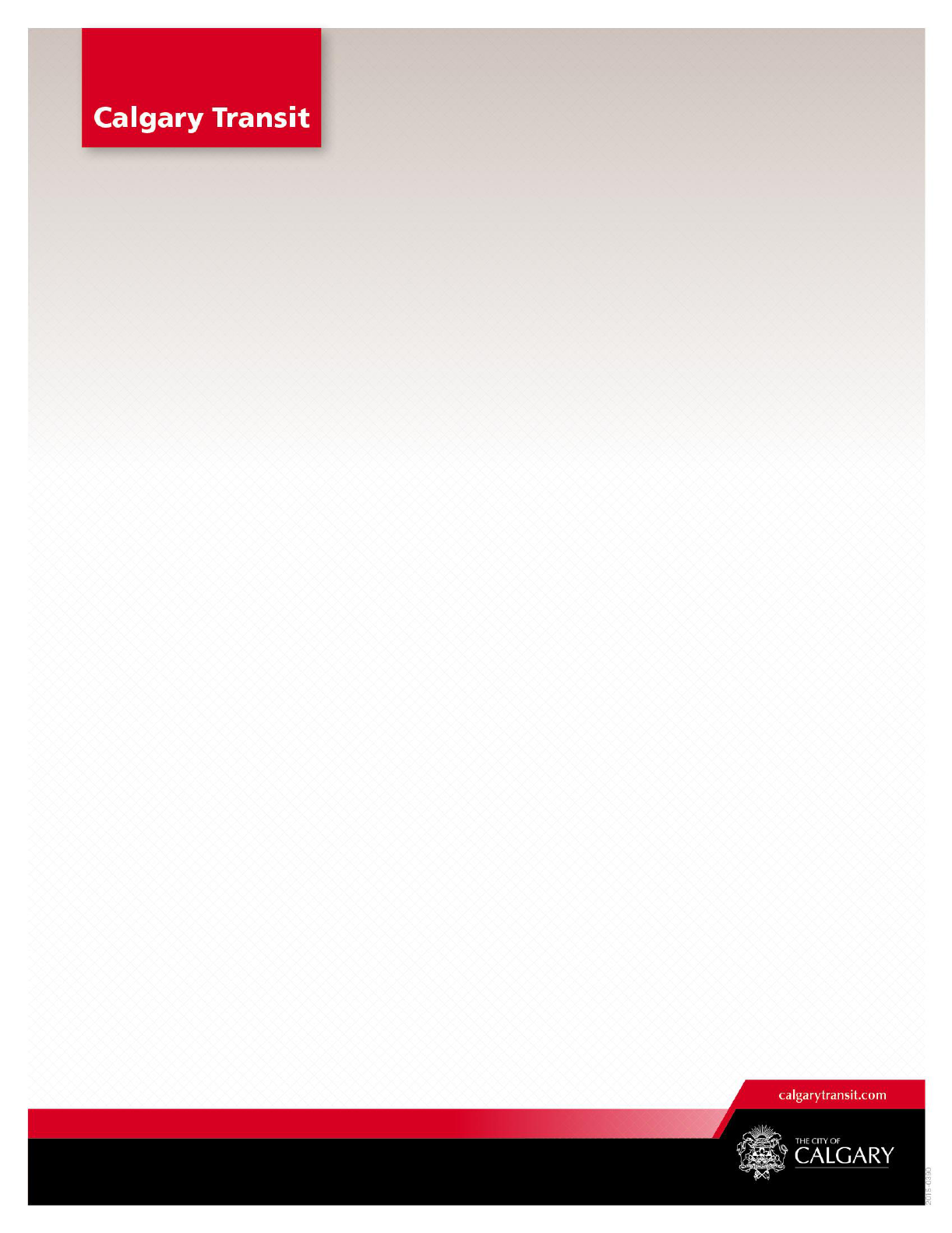
Onward/ Enabling more people to walk, cycle and use public transit to get around Calgary.
Public Safety and
Enforcement Section
Calgary Transit Banning Procedure
Together, we’re going places.

Section: A
Page: 1
Revision:
Issued: 2016 February 10
Table of Contents
Table of Contents .................................................................................................. 1
Purpose ................................................................................................................. 2
Definitions ............................................................................................................. 2
Legislation, Policies and Bylaws ........................................................................... 3
Procedures for Banning...........................................................................................5
Review of Notices / Right of Appeal ...................................................................... 7
Appendix A Trespass to Premises Act .................................................................. 9
Appendix B Calgary Transit Bylaw ...................................................................... 13
Appendix C Workplace Violence Policy.................................................................31
Appendix D Schedule – Respectful Workplace Policy ........................................ 37
Appendix E Appeals Process Notice ................................................................... 45

Section: A
Page: 2
Revision:
Issued: 2016 February 10
Purpose
The Calgary Transit Banning Procedure (“Banning Procedure”) provides guidelines and
information which explains when a person may be issued with a Banning Notice prohibiting
a person from being on, or using, Transit Property and Transit Vehicles.
The purpose for issuing a Banning Notice and prohibiting a person from using or being on
Calgary Transit Property and/or Transit Vehicles for a certain length of time is to ensure:
• The safety and security of the public, transit users, and City of Calgary employees;
• Compliance with the Transit Bylaw, Bylaw 4M81 (“Transit Bylaw);
• That the public, transit users, and City of Calgary employees are free from
interference and harassment; and
• That the operation of the City of Calgary transit system is carried out effectively and
efficiently.
The Trespass to Premises Act of Alberta, R.S.A. 2000 c. T-7, authorizes The City of
Calgary to ban trespassers from all Transit Property.
The common law of common carriers authorizes The City of Calgary to ban people who
engage in prohibited conduct from being on Transit Vehicles.
Definitions
The following definitions apply to this procedure:
“Banning Notice” – A Banning Notice issued by a Peace Officer which bans a person
from being on Transit Property and/or Transit Vehicles for a certain length of time.
“Boarding Zone” – Any portion(s) of Transit Property designated as a Boarding Zone
pursuant to section 5(5) of the Transit Bylaw.
“The City” – The municipal corporation of The City of Calgary, or the area contained
within the boundaries of The City of Calgary, as the context requires.
“Calgary Transit” – The transit system owned and/or operated by The City.

Section: A
Page: 3
Revision:
Issued: 2016 February 10
“LRT” – Light Rail Transit system owned and/or operated by The City for public transit
purposes and includes all Transit Property, including LRT trains, associated therewith.
“Peace Officer” – A person appointed pursuant to the Peace Officer Act of Alberta, R.S.A.
2006, c. P-3.5.
“Transit Parking Lots” – Parking lots owned and/or operated by The City which are
located adjacent to bus terminals and LRT stations intended to be used by customers
accessing the transit system.
“Transit Platform” – Any portion of Transit Property owned and/or operated by The City
for the use of passengers boarding or alighting from Transit Vehicles.
“Transit Property” – Any premises owned and/or operated by The City for the use of
public transit and includes but is not limited to a Transit Platform, Transit Station, Boarding
Zone, and Transit Parking Lots.
“Transit Station” – Any building or structure owned and/or operated by The City for public
transit.
“Transit Vehicle” – Any vehicle which is owned and/or operated by The City for the use of
public transit and includes any bus or LRT train or other vehicle used for that purpose.
“Trespass” – The unauthorized entry, as defined by the Trespass to Premises Act of
Alberta, R.S.A. 2000, c. T-7, onto Transit Property.
“Trespasser” – A person as defined in the Trespass to Premises Act who enters onto
Transit Property without permission.
Legislation, Polices and Bylaws
The following legislation and policies applies:
Trespass to Premises Act (“TPA”) (Appendix A)
Criminal Code of Canada
The City of Calgary Bylaw, Bylaw 4M81 (the “Transit Bylaw”)(Appendix B)
The City of Calgary Respectful Workplace Policy (Appendix C)
The City of Calgary Workplace Violence Policy (Appendix D)
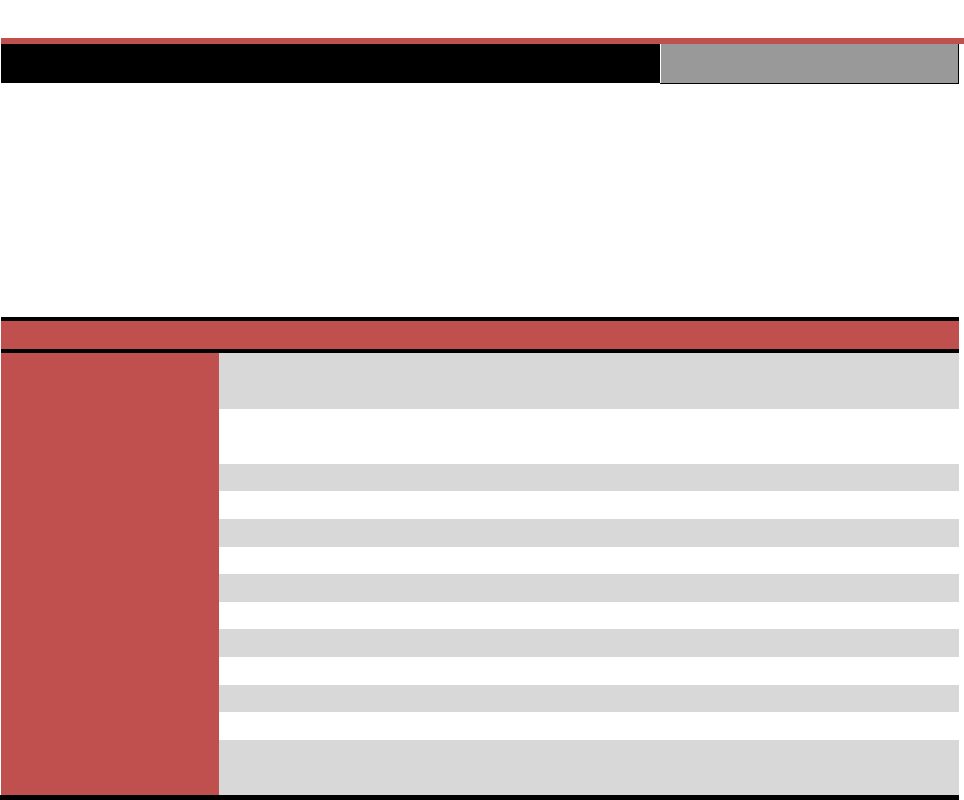
Section: A
Page: 4
Revision:
Issued: 2016 February 10
Peace Officers employed by Calgary Transit are deemed to be representatives of The City
authorized to issue a Banning Notice in accordance with these guidelines and the
procedures set out in the TPA.
Transit Bylaw – Pertains to conduct which occurs on Transit Property and/or Transit
Vehicles. Some of the more serious offences in the Transit Bylaw (“Serious Bylaw
Offences”) are listed below:
Section
Transit Bylaw Offence
Penalty
Section 11
Handle or operate any Transit Vehicle or Transit
Equipment
$2500
Section 12(1)
Ride on, stand on or hold any exterior portion of a
Transit Vehicle
$5000
Section 13
Damage to Transit Property
$500
Section 13.1
Interfere with operation of Transit Vehicle
$5000
Section 13.2
Interference causing delay or safety concern
$5000
Section 14(1)(a)
Expectorate, urinate or defecate on Transit Property
$300
Section 14 (1)(b)
Fight on Transit Property
$300
Section 14 (1)(c)
Interfere with comfort or convenience of transit user
$300
Section 14 (1)(d)
Cause a safety concern to transit user
$500
Section 14 (7)
Carry a firearm on Transit Property
$500
Section 14 (16)
Refusal to leave Transit Property
$500
Section 14 (18)
Apply graffiti to Transit Property
$5000
Section 14 (21)
Bring container of flammable or explosive materials on
Transit Vehicle
$500
City of Calgary Respectful Workplace Policy and Workplace Violence Policy –
Members of the public who attend The City’s premises, including Transit Property, ride on
Transit Vehicles, or who interact with City of Calgary employees in the course of their
duties, are subject to The City’s Respectful Workplace Policy and Workplace Violence
Policy. These policies apply to the treatment of City of Calgary employees such as transit
employees and other transit personnel in the course of their duties.
Criminal Code Offences – Criminal acts under the Criminal Code of Canada may include
but are not limited to:
Theft
Possession of narcotics and / or alcohol
Possession of stolen property
Property damage
Mischief
Assaults
Sexual Offences
Fighting
Offences under the Transit Bylaw

Section: A
Page: 5
Revision:
Issued: 2016 February 10
PROCEDURES FOR ISSUING A BANNING NOTICE WHICH APPLIES TO
TRANSIT PROPERTY AND/OR TRANSIT VEHICLES
A. Criteria for issuing a Banning Notice:
i. A person may be issued a Banning Notice where he or she engages in
behavior or conduct which (1) may include the commission of an offence
pursuant to the Transit Bylaw and/or the Criminal Code, (2) poses a risk to the
safety and security of the public, transit users, and The City’s employees, (3)
causes damage to Transit Property and/or Transit Vehicles, (4) hinders,
interferes with, or obstructs Calgary Transit’s ability to carry out the delivery of
its services to transit users and the public in a safe, efficient and effective
manner; or (5) breaches The City’s Respectful Workplace Policy or Workplace
Violence Policy.
ii. Prior to prohibiting someone from being on Transit Property or a Transit
Vehicle, Peace Officers employed by Calgary Transit must consider whether the
issuance of a Banning Notice is appropriate. The priority for issuing a Banning
Notice is to maintain the safety and comfort of Transit customers. Prior to
issuing a Banning Notice, Calgary Transit Peace Officers will consider factors
relevant to the affected person’s circumstances, including the affected person’s:
age, financial circumstances, understanding of English, ability to communicate,
homelessness, etc.
iii. A Banning Notice may be subject to a number of conditions outlining the
following:
• Whether it applies to all Transit Property and/or Transit Vehicles or only to a
specified portion thereof;
• What time of day/night it applies;
• What day(s) of the week it applies;
• Whether any exceptions will be made to permit:
- Travel to attend school or work commitments;

Section: A
Page: 6
Revision:
Issued: 2016 February 10
- Travel to attend business, medical, family, or other necessary
appointments; or
- Other exceptions where required in the circumstances.
B. Criteria for the Length of Time a Banning Notice imposes:
24 Hour Ban:
Anyone who engages in isolated conduct deemed to constitute a minor public
nuisance or an offence other than a Serious Bylaw Offence under the Transit
Bylaw.
30 Day (1 month) Ban
Anyone who causes a significant delay to the delivery of Calgary Transit
services or causes a safety concern to transit users, City employees, or the
public, conduct deemed to constitute a Serious Bylaw Offence, or an offence
under the Criminal Code, or which breaches The City’s Respectful Workplace
Policy or Workplace Violence Policy.
90 Day (3 month) Ban
Anyone who has already been issued with a 30 Day (1 month) Banning Notice
within the last 12 months or who engages in conduct which constitutes a
Serious Bylaw Offence, or an offence under the Criminal Code, or which
breaches The City’s Respectful Workplace Policy or Workplace Violence
Policy.
180 Day (6 month) Ban
Anyone who has already been issued with a 90 day (3 month) Banning Notice
within the last 12 months or who engages in conduct which constitutes a
Serious Bylaw office or an offence under the Criminal Code, or which
breaches The City’s Respectful Workplace Policy or Workplace Violence
Policy.

Section: A
Page: 7
Revision:
Issued: 2016 February 10
1 year (+) Ban
Anyone who has already been issued with a 180 Day (6 month) Banning
Notice within the last 12 months or who engages in conduct which constitutes
a Serious Bylaw Offences or an offence under the Criminal Code, or which
breaches The City’s Respectful Workplace Policy or Workplace Violence
Policy, or who is convicted of an indictable offence under the Criminal Code
involving an assault or use of force against a transit user, the public, or City of
Calgary employee, or who causes damage to Transit Property and/or Transit
Vehicles in the sum of more than $10,000.00, may be banned for a period of
up to one year or more, depending on the circumstances.
Arrest made under the TPA:
Anyone who refuses to leave Transit Property after having been issued with a
Banning Notice or who fails to comply with the terms and conditions of a
Banning Notice may be charged with an offence under section 14(16) of the
Transit Bylaw, or with committing a trespass pursuant to section 2 of the TPA.
Review of Notices / Right of Appeal
i. Appeal to the Inspector of Professional Standards:
The Inspector of Professional Standards (the “Inspector”) shall review all Banning Notices
and may, upon further investigation, vary the conditions of the Banning Notice. Where any
change to the Banning Notice is made, the Inspector will notify the person affected of those
changes by personal service or by registered mail.
A person who is issued a Banning Notice has the right to appeal the Banning Notice and
any conditions therein. Appeals must be made in writing to the Inspector and must be
submitted within 14 days from the date that the person received the Banning Notice or upon
having received a letter from the Inspector varying the conditions of the original Banning
Notice. The person seeking the appeal must provide reasons for the appeal and must say
what outcome he or she is requesting. The Inspector will provide the person affected with a
decision (the “Inspector’s Appeal Decision”) by personal service or by registered mail.

Section: A
Page: 8
Revision:
Issued: 2016 February 10
ii. Further Appeal to the Public Safety and Enforcement Coordinator:
Should the person affected wish to appeal the Inspector’s Appeal Decision, he or she must
do so in writing to the Calgary Transit Public Safety and Enforcement Coordinator (the “PSE
Coordinator”) within 21 days from the date that person received the Inspector’s Appeal
Decision. The person making the appeal must provide reasons for the appeal and must
say what outcome he or she is requesting. The person affected may request an oral
hearing and assistance through a legal representative or agent. The PSE Coordinator will
provide the person affected with the PSE Coordinator’s appeal decision (the “PSE
Coordinator’s Appeal Decision”) by personal service or by registered mail. The PSE
Coordinator’s Appeal Decision is final.
iii. Appeal of a Banning Notice which imposes a 1+ year ban:
Any person who has been issued a Banning Notice which imposes a ban which is 1 year in
length or longer may, at any time after at least 8 months has passed, contact the Inspector
in writing and request that the Banning Notice be varied or revoked based on a change of
the person’s circumstances. The Inspector will provide the person affected with a decision
by personal service or by registered mail. The Inspector’s decision may be appealed to the
PSE Coordinator in accordance with the appeal procedure set out for an appeal made to
the PSE Coordinator, as outlined above.
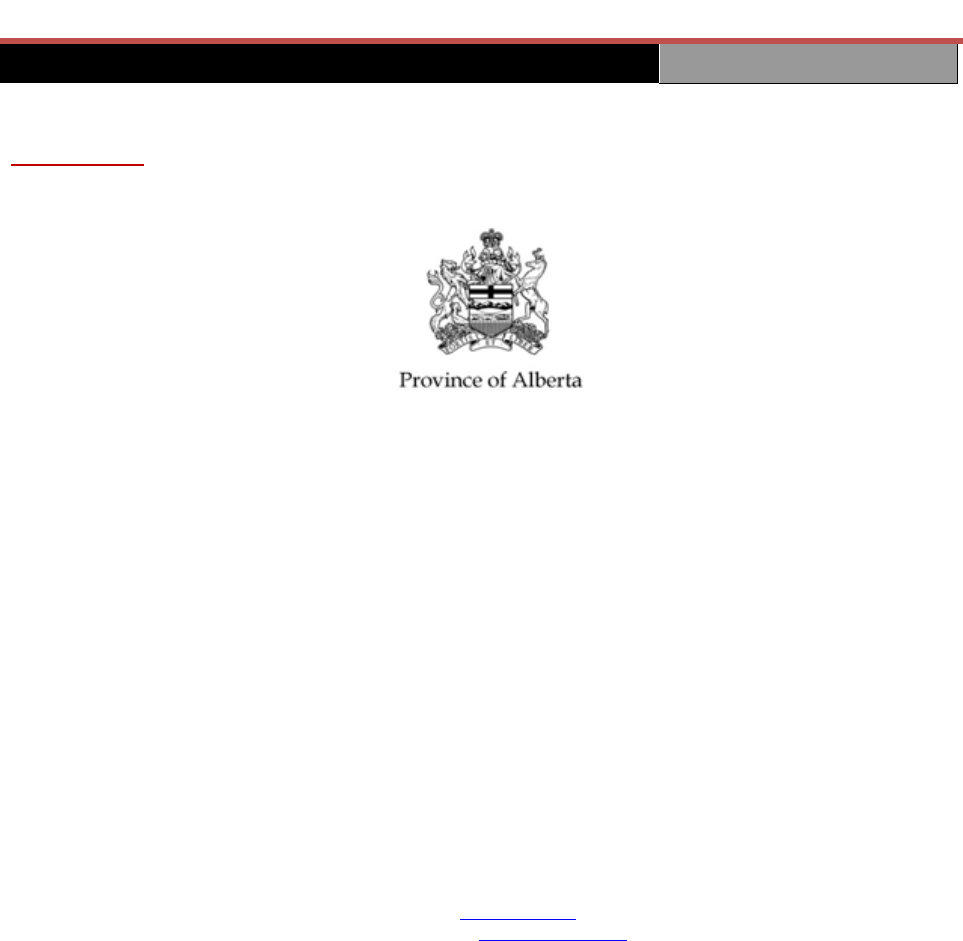
Section: A
Page: 9
Revision:
Issued: 2016 February 10
Appendix A
TRESPASS TO PREMISES ACT
Revised Statutes of Alberta 2000, Chapter T-7
Current as of June 1, 2004
Office Consolidation
© Published by Alberta Queen’s Printer
Alberta Queen’s Printer,
7
th
Floor, Park Plaza
10611 – 98 Avenue
Edmonton, Alberta T5K 2P7
Telephone (780) 427-4952
Fax (780) 452-0668
Email: [email protected]
Shop on-line at www.qp.alberta.ca
Copyright and Permission Statement
Alberta Queen's Printer holds copyright on behalf of the Government of Alberta in right of Her Majesty the Queen for
all Government of Alberta legislation. Alberta Queen's Printer permits any person to reproduce Alberta’s statutes and
regulations without seeking permission and without charge, provided due diligence is exercised to ensure the accuracy
of the materials produced, and Crown copyright is acknowledged in the following format:
© Alberta Queen's Printer, 20__.*
*The year of first publication of the legal materials is to be completed.
Note
All persons making use of this consolidation are reminded that it has no legislative sanction, that amendments have
been embodied for convenience of reference only. The official Statutes and Regulations should be consulted for all
purposes of interpreting and applying the law.

Section: A
Page: 10
Revision:
Issued: 2016 February 10
TRESPASS TO PREMISES ACT
Chapter T-7
Table of Contents
1 Definitions
2 Trespass
3 Offences and penalties
4 Liability of driver
5 Arrest without warrant
7 Jurisdiction of judge
8 Exception
9 Other enactments
HER MAJESTY, by and with the advice and consent of the Legislative Assembly of Alberta, enacts as
follows:
Definitions
1 In this Act,
(a) “authorized representative of the owner” means a person authorized by the owner to give notice
not to trespass;
(b) “owner” means the owner of premises and includes the following:
(i) the occupier of the premises;
(ii) the person who is in possession or control of the premises;
(c) “premises” means
(i) any building or structure or any part or portion of a building or structure, including any
land used in connection with that building or structure for the purposes of
(A) providing parking for vehicles,
(B) displaying or storing vehicles, equipment or other chattels,
(C) enhancing the appearance or use of the building or structure, or
(D) carrying out activities that are ancillary to the activities carried out in or on that
building or structure,
and
(ii) any other land not referred to in subclause (i) if that other land
(A) is land to which the Petty Trespass Act does not apply, or
(B) is land that is not subject to a specific exception provided for in section 1.1 of the
Petty Trespass Act;
(d) “signs” includes posters and signboards;
(e) “trespass” means a trespass committed under this Act;
(f) “trespasser” means a person who commits a trespass under this Act.
RSA 2000 cT-7 s1;2003 c41 s3
Trespass
2(1) No person shall trespass on premises with respect to which that person has had notice not to
trespass.
(2) For the purposes of subsection (1), notice not to trespass may be given to a person
(a) orally or in writing by the owner or an authorized representative of the owner, or
(b) by signs visibly displayed
(i) at each of the entrances normally used by persons to enter the premises, and
(ii) in the case of premises referred to in section 1(c)(ii), at all fence corners or, if there is no
fence, at each corner of the premises.
(3) For the purposes of subsection (1), a person is deemed to have had notice not to trespass when signs
are displayed in accordance with subsection (2)(b).
1997 cT-8.5 s2
Offences and penalties
3 A trespasser, whether or not any damage is caused by the trespass, is guilty of an offence and liable
(a) for a first offence, to a fine not exceeding $2000, and
(b) for a 2nd or subsequent offence in relation to the same premises, to a fine not exceeding $5000.
RSA 2000 cT-7 s3;2003 c41 s3
Liability of driver
4 When a trespass is committed by means of a motor vehicle, the driver of the vehicle is guilty of the
contravention of this Act and liable to the fine.
1997 cT-8.5 s4
Arrest without warrant
5(1) A trespasser may be apprehended without warrant by
(a) any peace officer, or
(b) the owner or an authorized representative of the owner of the premises in respect of which the
trespass is committed.
(2) Where a person other than a peace officer apprehends a trespasser, that person shall deliver that
trespasser to a peace officer as soon as practicable.
1997 cT-8.5 s5
6 Repealed 2003 c41 s3.
Jurisdiction of judge
7(1) Nothing in this Act authorizes the Provincial Court to hear and determine a case of trespass in
which the title to premises, or to any interest in the premises, is called in question or affected.
(2) A case that deals with the issues referred to in subsection (1) respecting the title to premises, or to
any interest in the premises, shall be dealt with according to law in the same manner as if this Act had
not been enacted.
1997 cT-8.5 s7
Exception
8 Nothing in this Act extends to a case where the trespasser acted under a fair and reasonable
supposition that the trespasser had a right to do the act complained of.
1997 cT-8.5 s8
Other enactments
9 This Act does not affect any other enactment relating to trespass.
1997 cT-8.5 s9

Section: A
Page: 13
Revision:
Issued: 2016 February 10
Appendix B
BYLAW NUMBER 4M81
BEING A BYLAW OF THE CITY OF
CALGARY TO REGULATE AND
CONTROL THE CONDUCT OF
PASSENGERS ON PUBLIC VEHICLES
* * * * * * * * * * * * * * * * * * * * * * * * * * *
(Amended by Bylaw Number’s 62M81, 6M82, 49M86, 54M87, 19M89, 23M90, 24M91,
58M91, 38M92, 52M92, 37M93, 27M94, 1M2000, 27M2000, 39M2002: Effective 2003
March 01,
38M2003, 42M2004, 31M2006, 52M2006, 42M2012)
WHEREAS pursuant to section 7 of the Municipal Government Act, RSA 2000, c.
M-26, the council of a municipality may pass bylaws for municipal purposes respecting:
the safety, health and welfare of people and the protection of people and property;
people, activities and things in, on or near a public place or place that is open to the
public; transport and transportation systems; and services provided by or on behalf of the
municipality;
AND WHEREAS it is desirable to regulate the conduct of users of the Calgary
transit system to ensure:
(a)
the safety of users and employees of the transit system;
(b)
that transit users may use the transit system free of interference or harassment; and
(c)
that the operation of the Calgary transit system is carried out effectively and
efficiently.
(B/L 42M2012, 2012 July
30)
1.
This Bylaw may be cited as the "Calgary Transit Bylaw".
2.
In this Bylaw:
(a.01) “Boarding Zone” - means any portion or portions of transit property
designated as a Boarding Zone pursuant to section 5(5);

Section: A
Page: 14
Revision:
Issued: 2016 February 10
(a) "Bus" - means a bus which is operated by the City for the use of the
passenger public;
(a.1)
“Bylaw Enforcement Officer” - means a person appointed pursuant to
Bylaw
60M86 to enforce the provisions of this Bylaw;
(b) "Calgary Transit" - means the transit system operated by the City of
Calgary;
(b.1) “City Manager” means the person designated by Council as its chief
administrative officer;
(c) “City” – means The City of Calgary, a Municipal Corporation in the Province of
Alberta, or the area contained within the boundaries of the City of Calgary, as the
context may require;
(d) “Council” – means the Municipal Council of the City;
(e) “Director, Calgary Transit” – means the City Manager’
(f) “Officer” – include a Peace Officer, a Bylaw Enforcement Officer or a member of
the Calgary Police Service;
(REPEALED BY B/L 27M2000, 2000 May 01)
(g) “Peace Officer” – means a person appointed pursuant to the Peace Officer Act,
S.A. 2006, c. P-3.5;
(h) “Restricted Fare Area” – means any portion or portions of transit property
designated as a Restricted Fare Area pursuant to Section 5 (4);
(i) ‘transit platform” – means any portion of transit property used by, or intended for
the use of, passengers boarding or alighting from transit vehicles;’
(j) “transit property” – means any premises owned, used or occupied by the City of
transit purposes;
(k) “transit station” – means any building or structure owned, used, or occupied by
City for transit purposes which is open to the public;
(l) “transit vehicle” – means any vehicle which is operated by the City for the use of
the passenger public including, without restricting the generality of the foregoing,
any bus or light rail transit vehicle operated by the City for the passenger public;

Section: A
Page: 15
Revision:
Issued: 2016 February 10
(m) “valid ticket” – means a ticket, transfer, permit or pass, other fare media or any of
them, which:
(a) is of a form and type approved pursuant to Subsection 4(1), and
(b) has been deposited, validated, or marked in accordance with the
instructions therefore contained thereon, and
(c) is being used in a manner and at a time and place complying with the
conditions relating to use contained on the ticket, transfer, permit or pass
or in this Bylaw, and
(d) has not been mutilated, defaced or otherwise altered.
(n) “7
th
Avenue transit corridor” – means the street, sidewalks, stations and
platforms on 7
th
Avenue South within the area bounded on the north by the
north by the north boundary of 7
th
Avenue South; on the east by the
western boundary of 4
th
Street East; on the south by the southern
boundary of 7
th
Avenue South; and on the west by the eastern boundary
of 11
th
Street West.
(B/L 62M81, 1981 December 15)
(B/L 49M86, 1986 September 15)
(B/L 19M89, 1989 June 27)
(B/L 23M90, 1990 November 19)
(B/L 1M2000, 2000 January 24)
(B/L 27M2000, 2000 May 01)
(B/L 38M2003, 2003 October 06)
(B/L 52M2006, 2006 November 13)
(B/L 42M2004, 2004 June 21)
(B/L 42M2012, 2012 July 30)
3. Fare for the use of transit vehicles shall be established by Council from time to time.
4. (1) The Director, Calgary Transit, may authorize the issue of tickets, transfers,
permits, passes and other fare media for use on transit vehicles subject to such
terms and conditions as may be specified by the Director, Calgary Transit.
(2) The fee to be charged for the issue of any ticket, permit or pass shall be
established by Council, from time to time.

Section: A
Page: 16
Revision:
Issued: 2016 February 10
(3) No person shall sell, barter or exchange any valid ticket issued or sold by the City
of Calgary for use on its transit vehicle for a price greater than the price printed on
the ticket without the prior written consent of the Director, Calgary Transit of
Calgary Transit.
(4) The Director, Calgary Transit, may each issue, without charge, complimentary
tickets, permits and passes subject to such terms and conditions as may be
specified by the Director, Calgary Transit.
(B/L 54M87, 1987 October 19)
(B/L 23M90, 1990 November 19)
(B/L 38M2003, 2003 October 06)
(B/L 42M2012, 2012 July 30)
5. (1) No person shall board, ride upon or otherwise use a bus unless:
(a) Such person has tendered for the payment of his fare the exact amount
established by Council; or
(b) His ride is authorized by a valid ticket.
(2) No personal shall bring aboard any transit vehicle;
(a) a dog, unless the dog is secured by a leash, or
(b) any other animal unless it is confined in a cage.
(3) Notwithstanding Subsection (2) there shall be no fare payable for a service dog
while such dog is being used by a disabled person.
(4) The Director, Calgary Transit, may designate any portion or portions of transit
property as a Restricted Fare Area by causing signs to be posted at the entrances
to such area indicating that the area is restricted to persons carrying valid tickets,
transfers, permits or passes.
(5) The Director, Calgary Transit, may designate any portion or portions of a transit
platform along the 7
th
Avenue Transit Corridor as a Boarding Zone by causing
signed to be posted indicating:
(a) the area designated as Boarding Zone; and

Section: A
Page: 17
Revision:
Issued: 2016 February 10
(b) that the Boarding Zone is restricted to persons entering, exiting or awaiting
the arrival of a transit vehicle.
(B/L 62M81, 1981 December 15)
(B/L 6M82, 1982 January 25)
(B/L 19M89, 1989 June 27)
(B/L 38M92, 1992 July 13)
(B/L 1M2000, 2000 January 24)
(B/L 38M2003, 2003 October 06)
*B/L 42M2012, 2012 July 30)
6. Any person refusing to make tender as aforesaid in payment of his fare shall de deemed
o be refusing to pay his fare.
7. (1) Notwithstanding Section 5, a person may tender for payment of a fare for a ride
on a bus an amount larder than the exact fare, but such a person shall not be
entitled to a refund for such overpayment.
(2) A person who tenders an amount larger than the dare required for a ride on a bus
may enclose such amount in an envelope provided by the operator of the bus,
along with his name and address, and the Director of Calgary Transit, may refund
any overpayment at such time and in such manner as the Director of Calgary
Transit, may designate.
(B/L 1M2000, 2000 January 24)
(B/L 27M2000, 2000 May 01)
(B/L 38M2003, 2003 October 06)
8. Deleted by 42M2012, 2012 July 30.
(B/L 62M81. 1981 December 15)
9. Any person who is found:
(a) Boarding our using a light rail transit vehicle of the City; or
(b) Entering or within a Restricted Fare Area:

Section: A
Page: 18
Revision:
Issued: 2016 February 10
and who fails to produce to an Officer upon demand a valid ticket is guilty of an
offence.
(B/L 62M 81, 1981 December 15)
(B/L 42M2012, 2012 July 30)
10. (1) No person shall sell, exchange or give away a transfer, validated ticket or non
transferable pass without the prior written consent of the Director, Calgary Transit.
(2) No person shall receive or use a transfer unless it has been issued to him on
payment of a fare by cash or ticket.
(B/L 27M94, 1994 July 04)
(B/L 42M212, 2012 July 30)
11. No person, other than a person authorized by the Director, Calgary Transit, shall handle
or operate any transit vehicle or any part of the mechanism or equipment of any transit
vehicle, or any equipment, devices or cars used in connection with Calgary Transit,
except devices which are intended for passenger use.
(B/L 1M2000, 2000 January 24)
(B/L 38M2003, 2003 October 06)
11.1 No person shall:
(a) enter inside of the corridor created by fences or barriers located on either side of
any
Light Rail Transit tracks, or
(b) where there is no corridor created by fences or concrete barriers, sit, stand, play,
or walk within three (3) meters of any Light Rail Transit tracks.

Section: A
Page: 19
Revision:
Issued: 2016 February 10
11.2 Section 1.1 does not apply to Officers or City employees or contractors whose duties
require them to enter the corridor referred to in Section 11.1 or come within three (3)
meters of the Light Rail Transit tracks.
(B/L 27M2000, 2000 May 01)
(B/L 42M2012, 2012 July 30)
12. (1) No person shall ride on, stand on or hold on to any exterior portion of any
transit vehicle.
(2) No person shall project any part of his body beyond the edge of any transit
vehicle, transit platform or yellow warning line on a transit platform except to
enter or leave a transit vehicle by the appropriate doors.
(B/L 27M94, 1993 July 04)
13. No person shall cause any damage to any transit vehicle, shelter or property which
is either owned or occupied by the City and which forms part of Calgary Transit.
13.1 No personal shall:
(a) prevent or interfere with the operation of a transit vehicle; or
(b) impede a transit employee in the operation of a transit vehicle.
13.2 No person shall interfere with the normal operation of any window, door, apparatus
or equipment of a transit vehicle so as to delay the normal departure of a transit
vehicle.
(B/L 42M2012, 2012 July 30)
14.1 No person shall, in or upon any transit vehicle, passenger shelter, transit station,
the 7
th
Avenue transit corridor, or any other transit property:
(a) expectorate, urinate or defecate;
(b) fight;

Section: A
Page: 20
Revision:
Issued: 2016 February 10
(c) engage in an activity which would molest or interfere with the comfort,
convenience or quiet use and enjoyment of the transit system of any
reasonable person; or
(d) behave in a manner that would cause safety concern to any reasonable
person.
14. (1.1) No person shall dispose of litter in or upon any transit property, except in a
receptacle provided for that purpose.
(2) No person shall carry a lit cigarette, cigar or pipe, or burn tobacco in any way,
on, in or with 1 meter of a:
(a) transit vehicle;
(b) Passenger shelter;
(c) Transit station; or
(d) Transit Platform.
(3) Deleted by 42M2012, 2012 July 30.
(4) No person who brings a dog aboard any transit vehicle shall permit the dog to
occupy any seat on a transit vehicle or allow the dog to move about on the
transit vehicle in an uncontrolled manner.
(5) Deleted by 42M2012, 2012 July 30.
(6) No person shall place any baby buggy or other obstructions in the aisle of any
transit vehicle.
(7) No person, other than a Peace Officer, shall carry a firearm while on a transit
vehicle.
(8) Deleted by 42M2012, 2012 July 30.

Section: A
Page: 21
Revision:
Issued: 2016 February 10
(9) Deleted by 42M2012, 2012 July 30.
(10) (a) No person shall play any musical instrument on a transit vehicle or
transit property without being in possession of the consent in writing of
the Director, Calgary Transit.
(b) Notwithstanding Subsection 14(10)(a), no person shall play any
musical instrument in a Boarding Zone.
(11) (a) No person other than an employee of Calgary Transit shall distribute,
sell or offer for sale any newspaper, printed matter or any other kind of
merchandize whatsoever on a transit vehicle or transit property without
being in possession of the consent in writing of the Director, of Calgary
Transit.
(b) Notwithstanding Subsection 14(11)(a), no person shall other than an
employee of Calgary Transit shall distribute, sell or offer for sale any
newspaper, printed matter or any other kind of merchandise in a
Boarding Zone.
(12) Subsection (11) does not apply to a person engaged in political campaigning
during a federal, provincial or City of Calgary municipal election.
(13) No person shall beg or solicit funds on a transit vehicle or transit property or in
the 7
th
Avenue transit corridor.
(14) No person, while on a transit vehicle or transit property or while on the 7
th
Avenue transit corridor shall use or operate any:
(a) bicycle, including a motor-powered bicycle, moped, recumbent bicycle,
tandem bicycle, or bicycle with training wheels;
(b) tricycle;
(c) roller skates, in-line skates or roller blades;

Section: A
Page: 22
Revision:
Issued: 2016 February 10
(d) skateboard; or
(e) motor vehicle (except in a parking lot or roadway;
(f) unicycle;
(g) push scooter; or
(h) electric personal transport vehicle.
(14.1) Subsection 14(14) does not prohibit the use of motorized 3 or 4 wheeled
scooters and motorized wheelchairs designed for person with infirmities or
other similar devices on a transit vehicle or transit property or while in the 7
th
Avenue transit corridor.
(15) No person shall bring on to any transit vehicle or have in his possession while
on any transit vehicle any:
(a) bicycle;
(b) tricycle;
(c) moped; or
(d) motorcycle.
(16) No person shall remain in or upon any transit vehicle; transit platform or transit
property after having been requested by an Officer to depart,
(16.1) For the purposes of Subsection (16), the 7
th
Avenue transit corridor “transit
platform” shall include the sidewalk immediately adjacent to a platform.
(17) No person except an Officer or an Escalator Repairman shall ascend or
descent, or attempt to ascend or descent an escalator installed in any transit
property in a direction other than the direction the escalator is moving, sit
upon the steps of the escalator or purposely, except in an emergency, cause
the escalator to stop.

Section: A
Page: 23
Revision:
Issued: 2016 February 10
(18) No person, without the consent of the Director, Calgary Transit, shall print,
write, draw, paint, affix, scratch or etch any advertisements, notices, words,
letters, symbols, names, pictures, geometric figures, numbers, phrases,
slogans, stickers or sentences upon the exterior of interior of a transit vehicle
or any transit property.
(19) No person shall enter onto or depart from, or attempt to enter onto or depart
from a transit platform except by the steps or stairway providing access to,
and departure from, a transit platform unless it is unsafe to use the steps or
stairway.
(20) No person shall place or allow their feet, foot or footwear to remain on or
against the bottom cushion or seat-back cushion of any seat on a transit
vehicle.
(21) No person shall bring on to any transit vehicle any container of flammable or
explosive material.
(22) No person shall knowingly hold open, block the electric eye or otherwise
impede the operation of the doors of a light rail transit vehicle.
(B/L 62M81, 1981 December 15)
(B/L 49M86, 1986 September 15)
(B/L 23M90, 1990 November 19)
(B/L 19M89, 1989 June 27)
(B/L 27M94, 1994 July 4)
(B/L 1M2000, 2000 January 24)
(B/L 27M2000, 2000 May 01)
(B/L 39M2002, 2002 December 16; Effective 2003 March 1)
(B/L 38M2003, 2003 October 06)
(B/L 52M2006, 2006 November 13)
(B/L 42M2012, 2012 July 30)

Section: A
Page: 24
Revision:
Issued: 2016 February 10
14.1 (1) For the purposes of this section,
(a) “bicycle” means a vehicle consisting of two wheels propelled by
human power and includes a folding bicycle but does not include
motor powered bicycles, mopeds, recumbent bicycles, tandem
bicycles or bicycles with training wheels; and
(b) “folding bicycle” means a bicycle that is designed to fold into a
compact form to facilitate transport and storage with wheels that are
no greater than 51 centimeters in diameter.
(2) Notwithstanding Subsection 14(15)(a), a person may bring a bicycle onto a
light rail vehicle transit station or platform or a light rail transit vehicle but this
exemption is strictly subject to the following terms and conditions:
(a) this exemption operates except during the hours of 6:30 a.m. to 9:00
a.m. and 3:00 p.m. to 6:00 p.m. on weekdays and such times as a
Calgary Transit personnel advises the user of the bicycle that
conditions warrant the removal of the bicycle from the vehicle,
platform or station;
(b) notwithstanding Subsection (2)(a) above, a folding bicycle may be
brought onto a light rail vehicle transit station or platform or a light rail
transit vehicle during the hours of 6:30 a.m. to 9:00 a.m. and 3:00
p.m. to 6:00 p.m. on weekdays if the folding bicycle is folded and
placed in a suitable bag or case;
(c) a bicycle shall be attended at all times unless left in a bicycle parking
rack;
(d) a bicycle shall not be ridden while on a vehicle, platform or station;
(e) bicycles shall not be carried on an escalator, except for a folding
bicycle that is folded and placed in a suitable bag or case;

Section: A
Page: 25
Revision:
Issued: 2016 February 10
(f) when using a station elevator or boarding or disembarking from a
vehicle the person attending a bicycle shall give the right-of-way to
other users;
(g) a bicycle shall be loaded only through the doors at either end of a
vehicle and unloaded from the same end;
(h) a bicycle shall not be moved from the bulkhead section of the vehicle
located between the doors on either side of the vehicle through which
it was loaded;
(i) no more than two bicycles are allowed in either bulkhead section of a
vehicle but a bicycle shall not be placed so as to obstruct the vehicle
operator’s access door to the bulkhead;
(j) a person bringing a bicycle onto a vehicle shall control the bicycle at
all times and not lean the bicycle against a seat, wall, pole, door or
other equipment on the vehicle;
(k) a person bringing a bicycle onto a station, platform or vehicle shall not
allow dirt, mud or grease to be deposited from the bicycle onto a
station, platform or vehicle or other passengers;
(l) a person carrying a bicycle onto a station, platform or vehicle shall
obey the directions of any Calgary Transit personnel with respect to
the transport and control of a bicycle.
14.2 Notwithstanding anything to the contrary contained in this or any Bylaw, an Officer
may operate a bicycle while on duty on any transit platform or other transit property
where the use of bicycles by the general public is prohibited or restricted.
(B/L 58M91, 1991 December 02)
(B/L 5M92, 1992 November 02)
(B/L 42M2012, 2012 July 30)

Section: A
Page: 26
Revision:
Issued: 2016 February 10
15. No person shall remove any transit vehicle or any premises of the City used for
transit purposes any article left thereon through apparent inadvertence but such
articles shall be left in the possession of the City or its employees for disposition
according to Law.
16. (1) The operator of a transit vehicle may prohibit any person from boarding a
transit vehicle if, in the opinion of that operator, the person would, upon
boarding, be in contravention of Subsections (2), (7) or (15) of Section 14 of
this Bylaw.
(2) All scheduled attached to this Bylaw shall form part of this Bylaw:
(3) Deleted by 42M2012, 2012 July 30.
(4) Deleted by 42M2012, 2012 July 30.
(5) Deleted by 42M2012, 2012 July 30.
(6) Deleted by 42M2012, 2012 July 30.
(7) Deleted by 42M2012, 2012 July 30.
(8) Deleted by 42M2012, 2012 July 30.
16.1 Any person who contravenes any provision of this Bylaw by doing any act or thigh
which the person is prohibited from doing, or by failing to do any act or thing the
person is required to do, is guilty of an offence pursuant to this Bylaw.
16.2 (1) Where an Officer believes that a person has contravened any provision of
this Bylaw, the Officer may commence proceedings against the person by
issuing a violation ticket in accordance with the Provincial Offences
Procedure Act, R.S.A. 2000, c.P-34.
(2) Where there is a specified penalty listed for an offence in Schedule “A” to
this Bylaw, that amount is the specified penalty for the offence.

Section: A
Page: 27
Revision:
Issued: 2016 February 10
(3) Where there is a minimum penalty for an offence in Schedule “A” to this
Bylaw, that amount is the minimum penalty for the offence.
(4) Notwithstanding Subsection 16.2(2):
(a) where any person has been convicted of a contravention of the same
provision of this Bylaw twice within one twelve month period, the
specified penalty payable in respect of the second conviction is
double the amount shown in Schedule “A” of this Bylaw in respect of
that provision, and
(b) where any person has been convicted of a contravention of the same
provision of this Bylaw three or more times within one twelve month
period, the specified penalty payable in respect of the third or
subsequent conviction is triple the amount shown in Schedule “A” of
this Bylaw in respect of that provision.
(5) Notwithstanding Subsection 16.2(3):
(a) where any person has been convicted of a contravention of the same
provision of this Bylaw twice within one twelve month period, the
minimum penalty payable in respect of the second conviction is
double the amount shown in Schedule “A” of this Bylaw in respect of
that provision, and
(b) where any person has been convicted of a contravention of the same
provision of this Bylaw three or more times within one twelve month
period, the minimum penalty payable in respect of the third or
subsequent conviction is triple the amount should in Schedule “A” of
this Bylaw in respect of that provision.

Section: A
Page: 28
Revision:
Issued: 2016 February 10
(6) This second shall not prevent an Officer from issuing a violation ticket
requiring a court appearance of the defendant, pursuant to the Provincial
Offences Procedures Act or from laying an information instead of issuing a
violation ticket.
(B/L 19M89, 1989 June 27)
(B/L 23M90, 1990 November 19)
(B/L 1M2000, 2000 January 24)
(B/L 52M2006, 2006 November 13)
(B/L 42M2012, 2012 July 30)
17. A person who is found guilty of an offence under this Bylaw is liable to a fine of not
more than $10,000.00 or to imprisonment for not more than one year, or to both
fine and imprisonment.
(B/L 62M81, 1981 December 15)
(B/L 37M93, 1993 June 28)
(B/L 31M2006, 2006 May 08)
(B/L 42M2012, 2012 July 30)
18. Bylaw Number 3913, as amended, and Bylaw Number 2249m as amended, are
hereby repealed.
19. This Bylaw comes into force upon receiving third reading.
Read a first time this 16
th
day of February, 1981.
Read a second time this 16
th
day of February 1981.
Read a third time this 16
th
day of February, 1981.
(Sgd.) R. Klein
Mayor
(Sgd.) J.E. Woodward
City Clerk

Section: A
Page: 29
Revision:
Issued: 2016 February 10
Schedule “A”
(Amended by 23M90, 37M93, 27M94, 27M2000, 31M2006, 52M2006, 42M2012)
Minimum and Specified Penalties
Offence
Minimum
Penalty
Specified
Penalty
Section
Description
5(1)(a)
Ride bus without tendering payment or without
valid ticket
$150.00
$250.00
5(2)
Bring unsecured dog or unconfined animal
aboard a transit vehicle
$150.00
$250.00
5(5)
Enter or remain in Restricted Fare Area without
valid ticket
$150.00
$250.00
9(a)
Board or use a light rail transit vehicle without
valid pass
$150.00
$250.00
9(b)
Enter or remain in Restricted Fare Area without
valid ticket
$150.00
$250.00
10
Sell, exchange, give away or receive a
transfer, validated ticket or pass
$150.00
$250.00
11
Handle or operate any transit vehicle or
transit equipment
$2500.00
$2500.00
11.1
Enter light rail transit corridor
$200.00
$350.00
12(1)
Ride on, stand on or hold any exterior portion
of a transit vehicle
$2500.00
$5000.00
12(2)
Project part of body beyond edge of transit
platform or transit vehicle
$200.00
$350.00
13
Damage transit property
$300.00
$500.00
13.1
Interfere with operation of transit vehicle
$2500.00
$5000.00
13.2
Interference causing delay or safety concern
$2500.00
$5000.00
14(1)(a)
Expectorate, urinate or defecate on transit property
$200.00
$300.00
14(1)(b)
Fight on transit property
$200.00
$300.00
14(1)(c)
Interfere with comfort or convenience of transit
user
$200.00
$300.00
14(1)(d)
Cause a safety concern to transit user
$300.00
$500.00
14(1.1)
Litter on transit property
$500.00
$500.00
14(7)
Carry firearm on transit property
$300.00
$500.00
14(16)
Refusal to leave transit property
$300.00
$500.00
14(18)
Apply graffiti to transit property
$2500.00
$5000.00
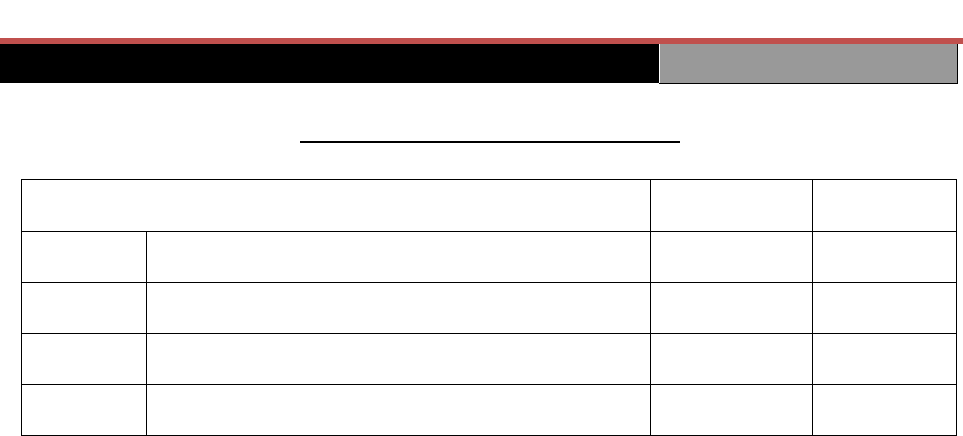
Section: A
Page: 30
Revision:
Issued: 2016 February 10
Minimum and Specified Penalties
Offence
Minimum
Penalty
Specified
Penalty
14(21)
Bring container of flammable or explosive
materials on transit vehicle
$300.00
$500.00
14 – all
other
subsecti
ons
$150.00
$250.00
14.1
Bring bike onto light rail transit vehicle
when prohibited
$150.00
$250.00
15
Remove any lost article from transit vehicle or
transit property
$150.00
$250.00
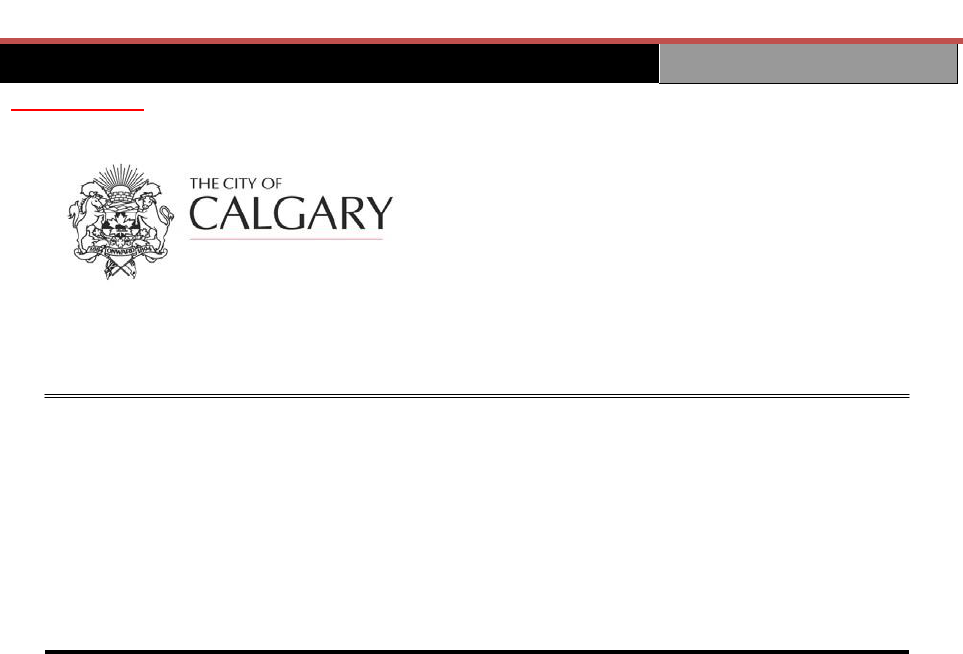
Section: A
Page: 31
Revision:
Issued: 2016 February 10
Appendix C
Workplace Violence
Policy Number: GN-040
ALT Report: ALT2014-0428
Approved By: Administrative Leadership
Team Effective Date: 2014/06/24
Next Revision Due: 2017/06/24
Department / BU: Corporate Administration / Law / Corporate Security
BACKGROUND
The Corporation of The City of Calgary (“The City”) is committed to making the
workplace as safe as is reasonably practicable for employees, contractors and users
of City services. This commitment is supported by The City’s Occupational Health
and Safety (OH & S) Policy and the Respectful Workplace Policy and is reflected in
The City’s values and vision and mission statements.
The City also has a duty under the Occupational Health and Safety (OHS) Code to:
develop policies and procedures respecting potential workplace violence;
instruct workers on how to recognize workplace violence;
communicate the policy and procedures related to workplace violence;
conduct hazard assessments;
develop appropriate responses to workplace violence; and
develop procedures for reporting, investigating and documenting incidents
of workplace violence.
Based on these requirements, Corporate Security, in partnership with Human
Resources and Environmental & Safety Management, has developed the Workplace
Violence policy to focus on workplace violence prevention and response at The City.

Section: A
Page: 32
Revision:
Issued: 2016 February 10
PURPOSE
The purpose of this Administration policy is to adopt a proactive approach to the
prevention of violence in the workplace, and outline the expectations of employees
and The City in reporting and responding to violent incidents if they occur.
DEFINITIONS
1. “Employee” for the purposes of this policy, is defined as City of Calgary employees,
contractors providing service for or to The City, suppliers delivering material to The
City, volunteers, and members of the public.
2. “Police” refers to the Calgary Police Service, unless the incident occurs outside the
city, in which case it will refer to the police agency of jurisdiction.
3. “Threat” means any act, gesture or statement that gives an employee, or another
person, reasonable cause to believe that there is risk of injury to themselves or
another person or damage to property.
4. “Violence” whether at a work site or work related, means the threatened, attempted
or actual conduct of a person that causes or is likely to cause physical injury and/or
damage to property.
It is not possible to describe every instance of threats or violence in the workplace
that employees must be aware of and refrain from and that The City will take steps
to prevent, assess, investigate, and resolve. Workplace violence encompasses a
range of threats and/or violent behaviours that may cause injury, damage to
property, impede the normal course of work or make employees fear for their safety.
Incidents may involve, but are not limited to employees, members of the public,
contractors, domestic partners, and family members.
5. “Workplace” means a place where an employee is, or may be, conducting work on
behalf of The City, including work-based social gatherings.

Section: A
Page: 33
Revision:
Issued: 2016 February 10
POLICY STATEMENTS
1.1 Scope / Exceptions
1.2 Scope
This policy applies to the following people and places:
People:
1. City of Calgary employees;
2. Contractors providing service for or to The City;
3. Suppliers delivering material to The City;
4. Volunteers;
5. Members of Council and their employees; and
6. Members of the public.
Places:
1. City buildings, facilities, sites, offices or work environments;
2. Locations visited by employees while traveling on City-related
business;
3. Conferences, meetings, vendor/supplier or customer sites; and
4. Locations of work-based social gatherings.
1.3 Exceptions
This policy has the following exceptions:
1. Harassment and discrimination or other behaviours addressed in the
Respectful Workplace Policy. However, Human Resources will notify
or consult with Corporate Security on active investigations in regard to
these matters.
2. Violence occurring between employees off site during non-work time
will be evaluated to determine whether any other City policies apply
(e.g. Respectful Workplace Policy).
2.0 General Policy Statements
2.1 Everyone listed in Section 1.1 will adhere to this policy and not subject any
other person or property to threats and/or violence.

Section: A
Page: 34
Revision:
Issued: 2016 February 10
2.2 The City of Calgary is committed to working in collaboration with its leaders,
employees, unions, and associations to provide a safe workplace. All parties
should be prepared to actively work together to address the issue of
workplace violence.
2.3 Any threat or violent act made against an employee or by an employee or
against City property will be dealt with as a serious issue and appropriate
action will be taken.
2.4 As an employer, The City has a duty to:
warn and protect staff, contractors and the public when there is an
issue, or potential issue, of violence in the workplace;
investigate reported incidents of violence in an objective and timely
manner;
take necessary action when violence has occurred or is likely to
occur; and
provide support for employees that fall victim to violence in the
workplace.
2.5 No action shall be taken against an employee for reporting an incident
unless the employee knowingly makes a false or bad faith complaint or
knowingly makes a false or misleading statement in which case the
employee may be subject to disciplinary action.
3.1 Prevention and Assessment of Risk
3.2 The ultimate objective is to prevent violence from occurring at City
workplaces.
3.3 The City as an employer has a role in prevention by:
identifying and assessing risks at City workplaces, including
workplace violence;
working collaboratively across business units to assist in
implementing appropriate mitigation measures to address risks;
and
educating employees on preventative measures.

Section: A
Page: 35
Revision:
Issued: 2016 February 10
3.4 Employees have a role in prevention by:
learning to identify warning signs of workplace violence;
refraining from workplace violence; and
reporting, in accordance with this policy, any violent incidents or
warning signs they observe at work.
4.1 Reporting Workplace Violence
4.2 Each employee has a responsibility to ensure that his or her work
environment is safe and secure. Employees must report any violent acts
occurring or that may occur in the workplace, including threats and warning
signs of violent behaviour. Employees must immediately inform their
supervisor if they:
have been threatened;
have been subjected to a violent act at work or during the course of
their work;
have witnessed a threat or violent act against or by an employee;
have reason to believe that they, another employee, a member of
the public or City property may become a target of violence.
4.3 Employees who do not feel comfortable reporting the situation to their
supervisor can report directly to any member of their business unit’s
management group, their union, Human Resources, their business unit’s
safety advisor or Corporate Security. If a situation presents an imminent
threat to an employee’s safety, an employee must call 9-1-1 and ask for
assistance from the Police.
4.4 These incidents will be reported by the employee or supervisor to Corporate
Security and Environmental & Safety Management to ensure an effective
investigation takes place and an appropriate response is developed.
4.5 Corporate Security must be advised when any legal action, criminal or civil,
is related to an incident (e.g.: restraining order).
4.6 Where an incident occurs and the health, safety and welfare of persons or
property is at risk, the Police need to be contacted immediately to intervene.
Once the Police have been contacted, Corporate Security needs to be
advised.

Section: A
Page: 36
Revision:
Issued: 2016 February 10
5.1 Investigating and Responding to Workplace Violence
5.2 All reported incidents of workplace violence or precursors to workplace
violence reported to Corporate Security will be triaged and facilitated by
Corporate Security using the Investigation Matrix.
5.3 If underlying causes of an incident are identified during an investigation,
recommendations may be provided for immediate preventative action.
5.4 The City will advise an employee who, as a victim of workplace violence,
may be experiencing adverse symptoms as a result of the violent act that
they should consider consulting with a health professional. Services are also
available from the City’s Employee & Family Assistance Program (EFAP)
provider, free of charge.
5.5 Applicable information from investigations will be reported to Environmental
& Safety Management to comply with OH & S legislation.
6.1 Consequences of Non-Compliance
6.2 Employees failing to adhere to the items contained in this policy will be
subject to appropriate disciplinary action. What is appropriate action will
depend on the circumstances of the incident and may range from, but not be
limited to, warnings and suspensions, up to and including dismissal.
Incidents may also be referred to the Police for investigation.
6.3 Contractors, suppliers, volunteers, and members of the public are expected
to adhere to this policy. If violence occurs, The City will take appropriate
action to ensure a safe workplace. This could include discontinuing business
with individuals or organizations, issuing Trespass Notices or referring the
matter to the Police.
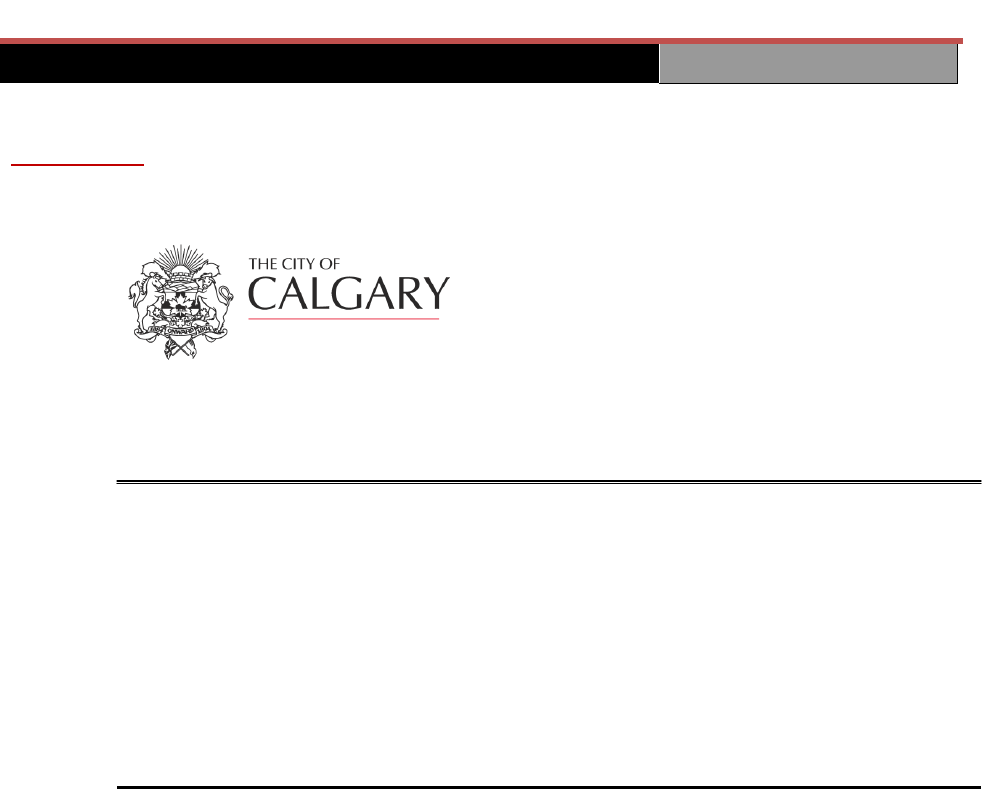
Section: A
Page: 37
Revision:
Issued: 2016 February 10
Appendix D
ADMINISTRATION POLICY:
Respectful Workplace Policy
Policy number: HR-LR-
001 (C) ALT Report: N/A
Approved by: Administrative Leadership
Team (ALT) Effective date: 2010 / 11 / 29
Next revision due: 2017 / 12 / 01
Department/BU:
Corporate Services / Human Resources
BACKGROUND
The Corporation of The City of Calgary (“The City”) is committed to creating
and sustaining a vibrant, healthy, safe and caring work environment.
PURPOSE
The purpose of this policy is to outline the minimum standards for creating a
vibrant, healthy, safe and caring work environment.
DEFINITIONS
None provided.

Section: A
Page: 38
Revision:
Issued: 2016 February 10
POLICY
1.1. Scope/Exceptions
1.2. Scope
This policy applies to the following people and places:
People:
1. City of Calgary employees, including job applicants;
2. Contractors providing service for or to The City;
3. Suppliers delivering material to The City;
4. Volunteers;
5. Members of City Council; and
6. Members of the public who are accessing City services or City
operated facilities.
Places:
1. City buildings, facilities, sites, offices or work environment;
2. Locations visited by employees while traveling on City
related business;
3. City related business including conferences, meetings,
vendor/supplier or customer sites; and
4. Locations of work-based social gatherings.
1.3. Exceptions
None identified.
2.1. Consequences of Non-Compliance
2.2. Any employee, who violates this policy, will be subject to
appropriate disciplinary action, which may include termination of
employment.
2.3. Members of the public, visitors to City facilities or individuals conducting
business with The City of Calgary, are expected to adhere to this policy.
This includes refraining from inappropriate behaviour towards
employees, elected officials, and persons acting on behalf of The City of

Section: A
Page: 39
Revision:
Issued: 2016 February 10
Calgary. If inappropriate behaviour occurs, The City will take appropriate action
to ensure a respectful workplace. This could include barring the person from
facilities or discontinuing business with contractors or suppliers.
3.1. General Policy Statements
3.2. The City of Calgary is committed to working in collaboration with its
employees, unions and associations to create a respectful workplace
by:
3.2.1. Promoting and maintaining a common understanding of the
expectations and behaviours considered appropriate and
inappropriate in City workplaces and in the delivery of or
access to City services, and;
3.2.2. Taking action to prevent and / or deal with
inappropriate behaviour wherever City business is
being conducted.
3.3. All people (see SCOPE) are to be treated with respect, honesty and
dignity. Behaviour and / or situations that run contrary to such
treatment will not be tolerated.
3.4. The City recognizes that conflicts, disagreements or inappropriate
behaviours will occur. We expect these issues to be resolved in a
manner that contributes to a healthy and productive workplace.
3.5. The City of Calgary promises to respond quickly to complaints about
inappropriate behaviour in the workplace, and to resolve issues
speedily, openly, honestly and with appropriate consideration for
privacy and confidentiality.
4.1. Criminal Offences
4.2. Where behaviour may constitute a criminal offence, The City’s
Corporate Security division will be notified.
5.1. False or Frivolous Complaints
5.2. Complaints that are found to be false, frivolous or made in bad faith
will not be tolerated and will be subject to appropriate disciplinary
action or denial of service.

Section: A
Page: 40
Revision:
Issued: 2016 February 10
6.1. Retaliation
6.2. Everyone has the right to report, in good faith, incidents of
discrimination, harassment or inappropriate behaviour without fear of
retaliation.
6.3. Retaliation by any person against anyone involved in informal or
internal or external formal complaint processes will not be tolerated
and will be subject to discipline, up to and including dismissal or denial
of City services.
7.1. Appropriate Workplace Behaviours
7.2. It is not possible to itemize every instance of appropriate or
inappropriate behaviour. In general terms, the kinds of behaviours that
are to be encouraged are those which support and create a respectful
workplace and its related business objectives.
Examples include:
Being polite, courteous and respectful of others.
Using common greetings, farewells or brief enquiries about others’
well-being which are seen as an acknowledgement of others as unique individuals.
When reviewing others’ ideas, suggestions or work, identifying what is positive or good
about the proposal as well as where it can be improved,
Treating others equitably and fairly.
Listening to what others have to say.
Being open-minded to others’ ideas, comments and suggestions.
Seeking input and the active involvement of appropriate people
in planning, decision-making and implementing initiatives.
Ensuring that decision-making takes into account relevant factors,
is fair and is seen to be fair.
Recognizing and valuing the diversity among workgroup
members, customers and citizens.

Section: A
Page: 41
Revision:
Issued: 2016 February 10
Willingly and sincerely apologizing to people when something you
said or did may have offended them.
8.1. Inappropriate Workplace Behaviours
8.2. Inappropriate behaviour is that which is objectionable and / or
unwelcome to an individual. Such behaviour serves no valid work-
related purpose and can create a poisoned work environment.
8.3. There are two categories of inappropriate behaviour addressed in
the policy. They are:
Disrespectful behaviour
Discrimination / harassment
8.2.1. Disrespectful Behaviour:
Disrespectful behaviour is:
Vexatious: conduct, comments, actions or gestures which
are humiliating, offensive, hurtful or belittling.
Repeated: conduct, comments, actions, or gestures which
when taken in isolation seem minor but when repeated can
lead to a conclusion of harassment.
A single incident of sufficient seriousness to have a
significant impact on the recipient or the work environment.
Hostile or unwanted.
Affecting the employee’s dignity, wellbeing, or physical integrity.
Resulting in a harmful or poisoned work environment.
Examples of disrespectful behaviour include, but are not limited
to:
written or verbal comments, actions, gestures or other
behaviours or ‘jokes’ which are humiliating, offensive, hurtful
or belittling;

Section: A
Page: 42
Revision:
Issued: 2016 February 10
bullying or intimidation;
abusing authority;
yelling or shouting (except where intended to alert another
to danger);
deliberately excluding an employee from relevant work
activities or decision making;
decision-making which is influenced by factors which have
no work-related purpose; and
attempting to discredit an employee by spreading
false information about him/her.
8.2.2. Discrimination / Harassment:
Behaviours practices, policies or systems which have a direct or
adverse impact based on: age, ancestry, colour, family status,
marital status, mental or physical disability, place of origin, race,
religious beliefs, sexual orientation, source of income, or gender
(including pregnancy and sexual harassment), or any other ground
covered by the Alberta Human Rights Act.
Discriminatory or harassing behaviours include comments or
actions which are unwelcome, that are based on a prohibited
ground of discrimination and result in a negative or poisoned work
environment.
Examples include:
Any previously described inappropriate behaviour that is
based on a prohibited ground;
Sexual harassment includes comments or conduct such as:
unwelcome advances, requests, comments, physical contact
such as unnecessary touching, pinching or jostling or
gestures that are suggestive or persistent staring that are of
a sexual nature. Implied or expressed threats of reprisal for
refusal to comply with a request of a sexual nature or implied
or expressed promises of reward for agreeing to comply with

Section: A
Page: 43
Revision:
Issued: 2016 February 10
a request of a sexual nature;
Unwelcome remarks, jokes, taunts, suggestions or
speculations about a person’s body, attire, sex life, etc.; and
Displays of pornographic or other sexual materials in the form
of pictures, electronic mail, graffiti, cartoons or sayings.
Discriminatory practices, policies, or systems include:
Denial of equitable treatment in hiring or in the
terms, conditions, or benefits of employment;
Access to or the processes by which people use City
related services, programs and/or facilities, and/or; and
Failing to accommodate an individual(s) protected under the
Alberta Human Rights Act (See Policy on Duty to
Accommodate in Employment HR-EMP-001).
9.1. Employee Responsibilities
9.2. Every employee has the right to be treated in a fair, reasonable
and respectful manner.
9.3. For this to be a normal part of our environment, we must find
strategies which prevent our differences from escalating and resolve
them quickly when they do occur.
9.4. As an employee of The City of Calgary, you are responsible for creating
a respectful workplace environment by:
9.4.1. Ensuring your behaviour is respectful and appropriate at all
times;
9.4.2. Accepting responsibility for your own actions, reactions, and
behaviours and your impact on others;
9.4.3. Making your concerns known promptly if something is troubling
you;
9.4.4. Being a part of the solution; and

Section: A
Page: 44
Revision:
Issued: 2016 February 10
9.4.5. Immediately informing a supervisor and Corporate Security if
there is an imminent threat or risk of violence that could
compromise an individual’s safety, as per the Workplace
Violence Procedures.
10.1. Leadership Responsibilities
10.2. As a leader at The City you have additional responsibilities to create and
sustain a respectful workplace environment. They include:
10.2.1. Being a role model for corporate behaviour standards such as
the Corporate competencies for leaders, the Respectful
Workplace Policy, the Code of Conduct and Corporate Values
and Goals;
10.2.2. Ensuring awareness of and compliance with the Respectful
Workplace Policy in your area of responsibility;
10.2.3. Taking appropriate action in a prompt, impartial and confidential
manner when Respectful Workplace Policy issues come to your
attention;
10.2.4. Supporting all parties involved in resolving issues under the
Respectful Workplace Policy, and
10.2.5. Making sure no person suffers reprisal as a result of making a
complaint, or for providing information.

4
6
Section: A
Page: 45
Revision:
Issued: 2016 February 10
Appendix E
Appeal Process
Should you wish to appeal the conditions of
this Trespass Notice, you must submit your
appeal in writing within 14 days of receiving
this Notice to the following:
Calgary Transit, Safety and Security Division
Public Safety and Enforcement Section
P.O. Box 2100, Station M, (166 VP)
Calgary, Alberta
T2P 2M5
Attention: Inspector, Professional Standards
Fax Number: (403) 268-3791
Telephone Number: (403) 268-8339
